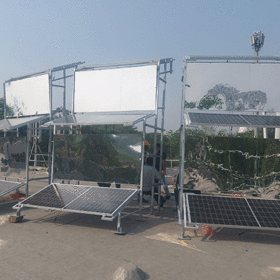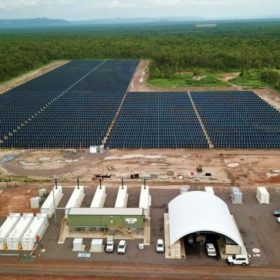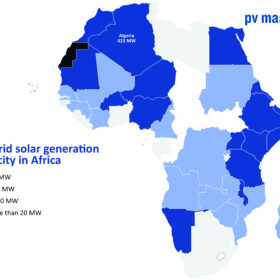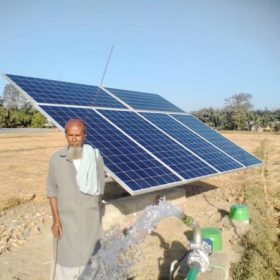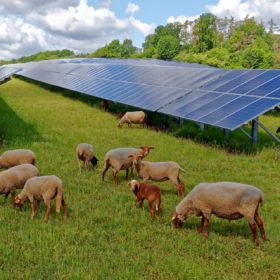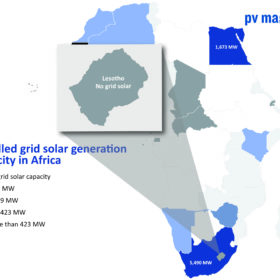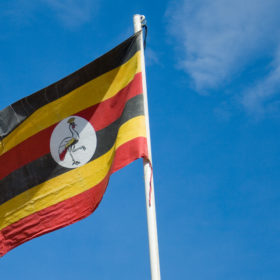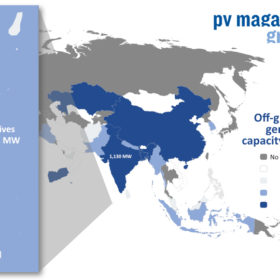Portable, space-saving photovoltaic towers
Researchers at the Indian Institute of Technology Delhi have developed solar towers that can be moved from one place to another and can generate 20-30% more power while requiring only 50-60% space compared to conventional mounting setups.
Tapping the offgrid solar market in India
Ashutosh Verma, the founder of solar appliance manufacturer Exalta India, says that the key to expanding the uptake of solar products in rural parts of India lies in improving access to finance.
Botswana-Namibia green hydrogen project expands to 5GW
The raised ambition of an already huge renewables-powered hydrogen project in the Southern African nations vividly demonstrates the hydrogen and clean energy potential of a continent which accounted for just 0.5% of the world’s new solar capacity last year, according to trade body AFSIA’s annual report.
Solar water pumps for farmers
With solar water pumps, farmers have access to high-quality power available for irrigation. These systems are portable and can be assembled at any preferred location. With the growing utilization of these systems, the costs have decreased substantially, making them an efficient, convenient and cost-effective solution for grid-isolated rural areas.
Africa’s winners and losers in the bid to go solar
While East Africa – and Kenya is particular – has made great strides in the provision of off-grid solar systems, Central Africa is a long way behind, according to a new report from IRENA and the African Development Bank. In terms of investment, the study’s authors wrote, much, much more will be required to achieve universal electricity access this decade.
All solar is equal, but rooftop solar is more equal
Cornell Researchers have found that upstate New Yorkers prefer rooftop solar to community solar under 50 acres, but opinions are split 50/50 over large-scale ground mounts. The distaste for utility-scale solar is strongest when converting forests, public land and productive farmland.
Backing for solar-plus-storage mini grids in Lesotho
The 11 planned off-grid networks will offer clean power to around 20,000 people for €0.28/kWh, according to one of the EU bodies which is backing the project.
RTI International seeks developers for three solar mini grids in Uganda
The U.S.-based non-profit organization is supporting the United States Agency for International Development (USAID) in the development of the three mini grids. The incentives for the projects will be provided in the form of grants.
Maldives to turn to solar for outer islands
The Indian Ocean island nation, which has been a prominent voice in the global calls to combat rising sea levels, will get technical assistance from the Asian Development Bank to draw up a tender for 20-30MW of photovoltaic generation capacity.
Stepping UP in 2021: #4 Urban solar
Buildings are key to our daily lives and significantly impact our health and wellbeing. The majority also have substantial carbon footprints, employing heavy use of fossil fuels across their lifetimes, from their construction, use, and demolition phases. Thus, in Q4 2021, pv magazine’s UP Initiative focused on the role solar and energy storage can play in greening the world’s urban spaces.
